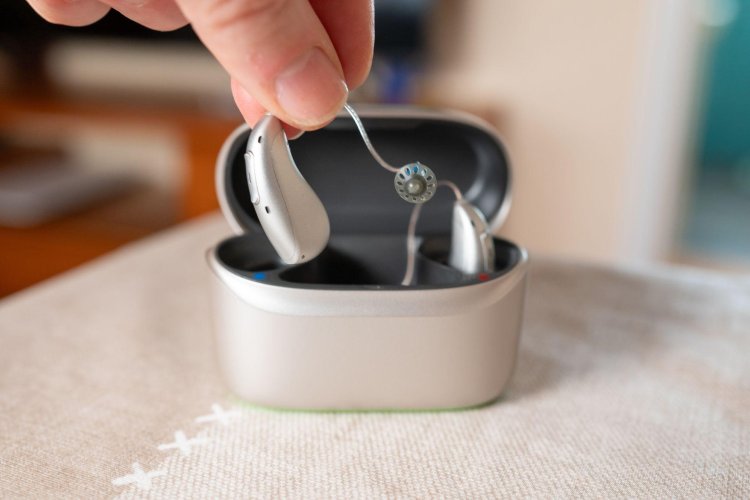Tinnitus, a condition that causes ringing or buzzing in the ears, can significantly impact your well-being. It not only affects you physically but can also take a toll on your mental health. Studies show that tinnitus is linked to conditions like anxiety and depression, which can lead to a lower quality of life. In this blog, we explore the link between tinnitus and mental health, how tinnitus can affect you, and how to prevent mental health issues related to tinnitus.
Understanding the Impact of Tinnitus
The persistent nature of tinnitus can lead to psychological distress in someone’s life. This can cause anxiety, stress, and frustration. The constant perception of sound can be intrusive and disrupt daily activities, which often results in irritability and difficulty concentrating.
Tinnitus can make it hard to fall asleep or stay asleep, leading to sleep issues and fatigue. Lack of quality sleep can contribute to mood disturbances, decreased well-being, and worsening symptoms of Tinnitus.
Due to the discomfort caused by the condition, some people with tinnitus may withdraw from social activities. This isolation can lead to feelings of loneliness, anxiety, and depression. It can affect their ability to enjoy activities, concentrate, and maintain healthy relationships.
The Association Between Tinnitus and Mental Health
Studies have found a link between tinnitus and mental health conditions. One study from the Journal of the American Medical Association found that those with tinnitus had higher levels of anxiety and depression. They also had lower self-esteem and overall well-being compared to those living without tinnitus. Another study from the International Journal of Audiology showed that tinnitus often led to increased psychological distress. This was especially common among individuals with hearing loss. These findings show the need to focus on both the physical and mental aspects of tinnitus.
Preventive Strategies for Tinnitus-Related Mental Health Problems
Unfortunately, there is no known cure for tinnitus, but there are several strategies that can help tinnitus-related mental health problems.
- Seek professional support. Consult with a healthcare professional or audiologist who specializes in tinnitus management. They can provide guidance, support, and appropriate treatment options, such as hearing aids or medication, to manage the symptoms. This can help reduce its impact on your mental health.
- Cognitive-behavioral therapy (CBT). CBT can help people develop positive coping mechanisms to change negative thought patterns associated with tinnitus. It focuses on reducing stress to improve mental well-being.
- Sound therapy. Sound therapy involves using external sounds, such as white noise or nature sounds, to mask or distract from tinnitus. This can help individuals relax by reducing their focus on tinnitus sounds.
- Relaxation techniques. Practice relaxation techniques like deep breathing, meditation, and yoga. These can help manage stress and promote mental well-being.
- Support networks. Engage with support groups or connect with others who have experienced tinnitus. Sharing experiences, advice, and support can help with tinnitus-related mental health issues.
- Maintain your health. Pay attention to both your physical and hearing health. Healthy lifestyle choices like regular exercise, balanced nutrition, adequate sleep, and stress management can help.
Contact Us
Tinnitus can have a significant impact on a person's mental health. It can affect their well-being, quality of life, and relationships. Seeking professional support can help you understand the link between tinnitus and mental health. If you need help managing your tinnitus, reach out to Beltone South today. Remember, you are not alone in your journey. We are here to help.






